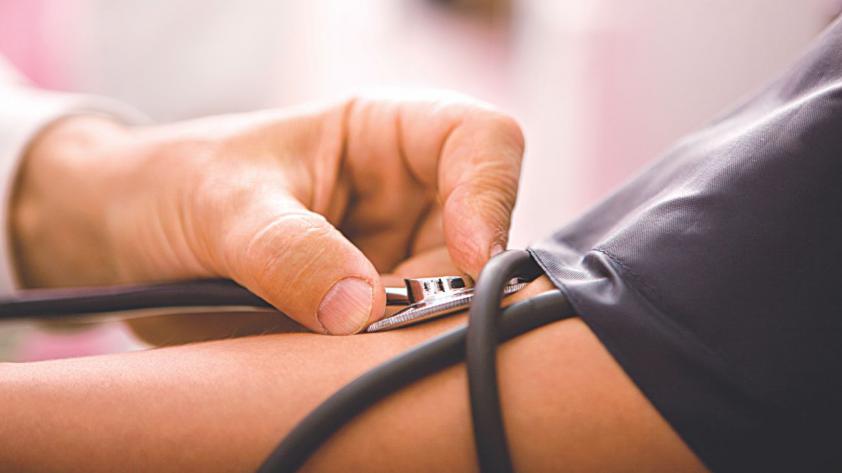Addressing NCDs in emergencies

In the shadow of the humanitarian crisis in Ukraine, people are struggling to receive treatment for their non-communicable diseases (NCDs) such as cancer, lung and heart disease and diabetes.
Roads are blocked, health facilities are in disrepair, medicines are scarce and financial resources to make out-of-pocket payments are absent.
Humanitarian health workers like Dr Tamara Rudalovska in Mariupol, Eastern Ukraine, who works from one of the World Health Organisation (WHO)-supported Mobile Emergency Primary Healthcare Units, is also finding it difficult to monitor and treat patients with NCDs.
Responding to the need
A lapse in care for NCDs, even for a short period of time, can result in higher levels of disability and premature deaths. Worldwide, NCDs take 16 million lives prematurely every year. Without adequate supplies and trained staff to treat patients with NCDs in humanitarian emergencies, this number is expected to grow.
Working closely with the Ukrainian Ministry of Health and local health authorities, WHO has been piloting emergency NCD kits in the Mobile Emergency Primary Healthcare Units since early 2015. The kits provide many fundamental supplies for treating NCDs including, drugs for managing cardiovascular disease, insulin and glucometers to measure blood sugar levels for diabetes, and inhalers for asthma. The kits are a success. Patients who were not able to afford medications or find pharmacies with supplies are now continuing treatment for their NCDs.
“People are very grateful and pleased when the Mobile Emergency Primary Healthcare Unit’s team comes to their village to provide medical care and medicines to them,” Dr Rudalovska explains.
Scaling up globally
Based on the success of Ukraine’s pilot emergency kit, WHO is working to improve the emergency health kits it already deploys to humanitarian emergencies so they better address the needs of people living with NCDs.
The existing Interagency Emergency Health Kits, managed by WHO, provide essential medicines, supplies and equipment to provide basic medical care for 10,000 people for 3 months. The kit, however, does not provide the tools needed to prevent and treat NCDs.
Later this year, WHO and other humanitarian agencies plan to review the possibility to increase the quantity and types of medicines for NCDs in the Interagency Emergency Health Kit. These could include lifesaving medicines for severe asthma, heart failure and Type I diabetes.
“There is a high demand for emergency kits with supplies to treat non-communicable diseases,” says Hyo Jeong Kim, technical officer in Emergency Risk Management and Humanitarian Response department at WHO. Because humanitarian organizations need to ensure the kits are light and mobile, heavy equipment like defibrillators and dialysis machines cannot be included in the Interagency Emergency Health Kit. A separate global emergency NCD kit, like the one in Ukraine, is being discussed. “The burden of NCDs is becoming ever more prominent in humanitarian emergencies,” says Kim. “Treating these patients will not only help to save lives of those experiencing severe symptoms but also alleviate the longer term health consequences, which can put an exponential burden on the health systems as they recover.”
Source:
The Daily Star. 20 September, 2015. Retrieved from http://www.thedailystar.net/health/addressing-ncds-emergencies-145747

